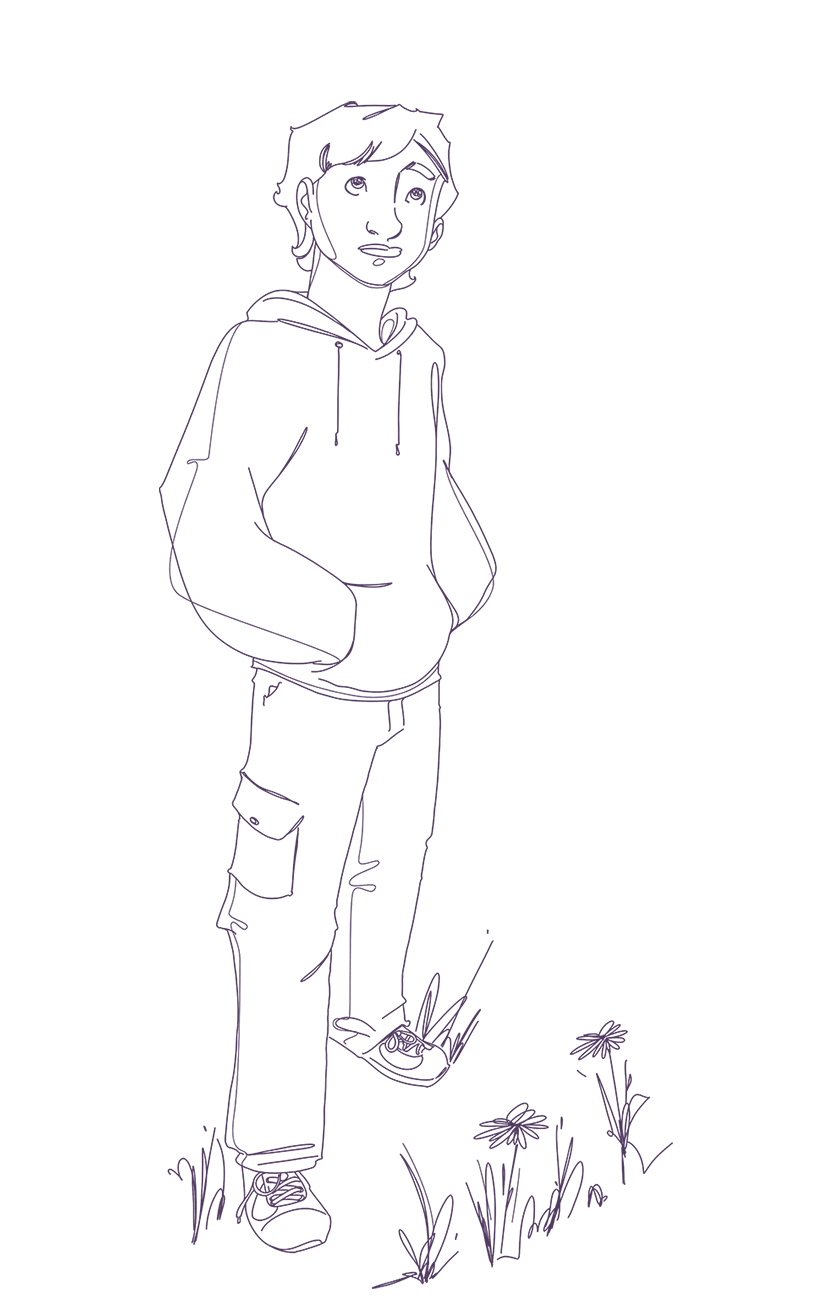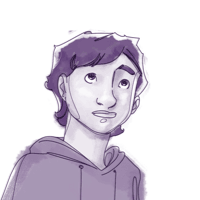


What is ALS? How do I talk about it?
Talking About ALS
- When did you find out about ALS?
- Did someone tell you, or did you just hear about it?
- Did your family talk about what ALS is, or did you have to look it up?
You can find out about ALS in a variety of ways. Some people learn about a diagnosis right away, and others much later. Sometimes younger family members feel angry or mad that they didn’t know their relative had ALS or that their parents didn’t talk to them, link in the case of Lara. Other’s may feel like they have to look everything up on their own, like Bradley—which can be scary. Either of these reactions is totally understandable. You want to know things and be a part of conversations.
So, talking is good—even when it’s hard. But what does communication actually look like in families? How do kids talk about ALS, and with whom?
Let’s check in and see what options you have for talking.

Bradley
Bradley was 13 years old when his dad was diagnosed with ALS. Initially, Bradley had a hard time facing the fact that his dad was very sick.
Bradley was already going through a number of changes in his life. His parents had divorced a few years prior, and he was having to split his time between his mom’s house and his dad’s house. His dad’s health was declining quickly—he was already having trouble speaking and walking within a few months of being diagnosed with ALS. Bradley was sad after his dad was diagnosed, but he wasn’t sure if he was ready to talk about his dad’s ALS. He didn’t need another reason for people to see him as ‘different’ since his parents were divorced, and they did not have much money. He had a few close friends and was close to his mom, but he didn’t know how to talk to her—did she still love his dad? I mean, she cried a lot, but Bradley wasn’t sure. He loved his brother and was close to him, but Andy was acting really weird, like a “new dad”.
Talking with your family
Many families out there do a great job of talking about ALS. They are open and share thoughts and information with family members, including youth in the home. They process information and share feelings, which is helpful for all involved.
But, some families have a hard time talking about illness and ALS. Let’s cover some of the reasons why families do not talk about ALS. Do any of these sound like your family?
Your family feels like they are protecting you by not talking about it
Your parents’ and family’s main role is to make sure you are provided for and safe. They may view talking to you about ALS as making you sad and hurt. Parents often say that they don’t want their kids to “worry” about ALS, but what happens is they end up not talking to you about ALS at all.
They are also concerned about what you may find out on your own through the Internet. We know you have access to the Internet. In fact, you grew up with the Internet and access to all kinds of information. You can look up just about anything very easily. However, that information is not always correct. Parents talk about this a lot—they want to protect you from what is out there on the Internet.
What can you do? Let them know you are OK, and that you want to talk about it—as hard as it may be for them to have the conversation. Open and honest is a good way to start.
If you were Bradley, what would you do?
-
Bradley decided to talk to his best friend, Craig, about his dad’s ALS diagnosis when they were riding their bikes through town. Bradley thought it would be a hard thing to talk about, but it helped that they were just riding their bikes like always—it wasn’t like a scheduled, sit-down conversation, which would have made Bradley feel weird.
Craig asked a couple of questions about what ALS was, and Bradley was able to share some of the information he had learned while at one of his dad’s medical appointments. Craig offered to help Bradley with homework or taking extra notes if Bradley ever had to miss classes to help out at home. Bradley felt better after sharing his news and having someone else know what he was going through.
-
Even though Bradley had good teachers at school, he just did not feel comfortable talking about his dad’s ALS since his brother and sister attended the same school. He felt like he would be betraying his family since he knew his siblings had not talked to anyone. Through The ALS Association chapter in his state, Bradley heard about a “youth event” that was part of a larger adult ALS meeting. Bradley had no intention of going to the youth event, but his dad wanted to go to the adult meeting and needed help with transportation.
Bradley and his brother, Andy, took their dad to the meeting, and Bradley decided to try the youth event while Andy stayed with their dad. Bradley met some other kids—which was great—but he still felt like he could not open up and talk to anyone. During lunch, one of the social workers sat next to him and just started talking. She was easy to talk to and seemed to know a lot about ALS and kids. Bradley told her all about his family, his sister who won’t talk about it at all, his brother who acts like he is the dad, and his mom who is just sad. The social worker made a very large impact on Bradley and how he thought about living with a parent with ALS. She talked about not giving up on his dad, no matter how bad his ALS got and to understand that some people have a really hard time talking—but that does not mean they don’t care. This helped Bradley understand his sister a bit better.
-
Bradley decided not to talk to anyone about his dad’s ALS. Bradley withdrew from his friends at school—he felt different and weird and didn’t know how to talk to other kids about what was going on at home. His dad’s best friend, Mr. Schmidt, tried to reach out, but Bradley just did not know what to say. Bradley had to miss some school, as well to attend his dad’s doctor appointments and struggled to keep his grades up. He wanted to talk to his mom but didn’t know what to say to her either. His sister did not talk to anyone, and his brother was acting so bizarre, Bradley did not know what to think.
- What can you take away from these real-world examples?
- Did they say or do something that makes sense to you? How can talking to friends about ALS help you in school?
Not Talking
Some of you may be saying—yeah, well I don’t want to talk to anyone. I am fine. I don’t need to talk about everything, all the time. It feels way more comfortable to stay in your room, avoid home, or take on extra shifts at work.
Lots of people feel this way. Maybe they are just too overwhelmed, or too sad to talk. Maybe they are angry that this happened to their family. Or maybe they are just angry that they have to deal with it. There are many reasons why someone does not talk about it.
Not talking—while initially comfortable—can end up being a bad idea. When we don’t talk to anyone, we can’t let go of feelings—good or bad. We need to let off steam, ask questions, and get support. We have met many kids who did not talk to anyone. Some just did not know how to bring it up. They ended up feeling really stressed out, sad, and isolated from everyone. You deserve to talk it out with someone and to get the support you need.
Continue the Journey
School & PeersView another journey in “Talking about ALS”

